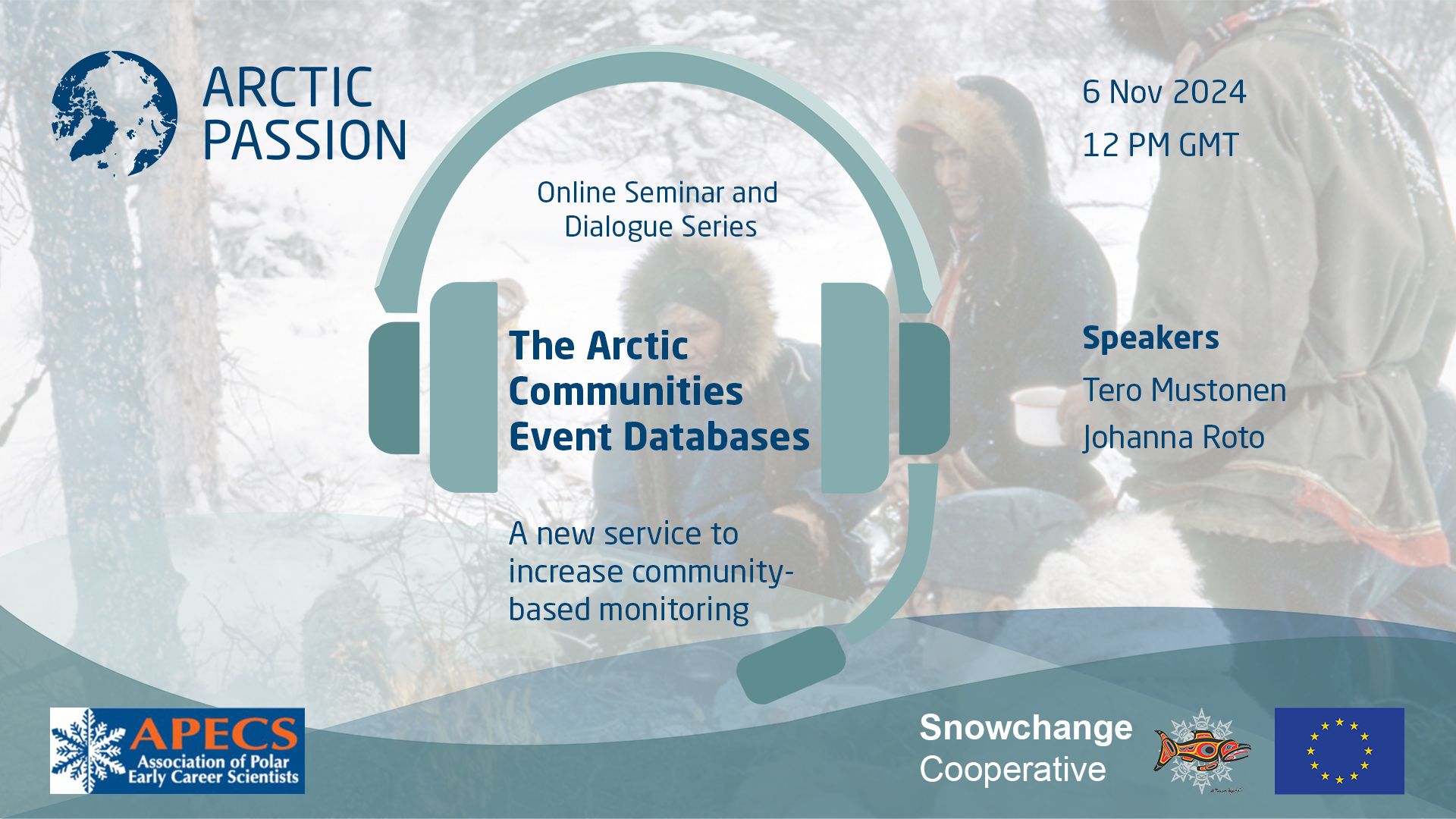Major Northern Indigenous Hub And Databases Launched, Documenting Observations And Knowledge Of The Arctic
by Sabrina Heerema | Published: 16-Oct-24 | Last updated: 23-Aug-24 | Tags : Arctic climate Data indigenous knowledge observation research | category: PRESS RELEASE
A major northern Indigenous Knowledge hub and Event Databases have been launched, documenting observations and knowledge about the Arctic. This will allow for a broader understanding of changes in the Arctic environment, as well as the potential for novel responses to the challenges faced due to climate change.
Findings documented by the newly launched databases include:
- Gwich’in knowledge dating back to Myth Time unveiled
- Local observations of marine species, fish, and birds reveal priorities for West Greenland
- Faroese communities share 20 years of observations on pilot whales, marine pollution, and seabirds
- Russian indigenous and Siberian communities highlight tundra fires, the preservation of nomadic lifestyles, and changes in the White Sea ecosystem
The EU Horizon Project Arctic PASSION and Snowchange have been working with hundreds of indigenous and local knowledge holders since 2021 to prepare Event Databases across the North.
Many past environmental events experienced by Arctic societies remain largely unknown to contemporary scientific research. With respectful engagement with Arctic co-researchers, community-embedded IK-LK has the potential to transform and provide a more complete picture of past environmental change, enhance current monitoring activities and build trust between local and scientific communities. Indigenous people were positioned as key co-researchers, with full ownership of their knowledge. Free, prior, and informed consent were implemented in each action.
The Event Databases serve as unique repositories of climate and ecological change. They also translate observations from local languages into English and present contemporary weather and ecological monitoring, the use of cultural indicators, visual and oral histories, and other means to establish baselines of change. Event Databases also reconstruct key events and provide historical depth to many of the changes taking place in the Arctic environment today.
The central node for all databases is the Arctic Seas portal. Under each community, databases can be accessed directly. Some of the communities will be connected to the whole database during the summer, so the Arctic Seas portal will be updated throughout the season.
About the Event Databases
The Skold Sámi Event Database focuses on the detection of microplastics in the Näätämö river basin, the region’s lakes, and the Neiden Fjord. This is accompanied by the first-ever Skolt Sámi ethnobotanical surveys and drone documentation of thawing Palsa permafrost sites. A scientific paper summarises the key findings of the interplay between indigenous knowledge and science.
Gwich’in Knowledge has been curated over the past three years with knowledge holders and oral history experts. It presents accounts from Myth Time to the 2000s, highlighting the Gwich’in homeland in both photographs and oral histories. Drawing on hundreds of hours of expert testimony from Gwich’in elders, the database is a vital effort to bring land-based, lived experiences of climate change to the forefront.
Hunters, fishers, and researchers from the PISUNA project and the Snowchange Cooperative presented a new database of Inuit observations of climate, ecological, and cultural change in western Greenland. Based on oral histories, self-documented videos and photographs, and a decades-long indigenous monitoring programme, the database is an important effort to bring local, lived experience of climate change to the centre of efforts taking place in Greenland and the broader Arctic. The website also contains important reflections on Greenlandic history and cooperation with scientists.
Faroese sheep farmers, fishers, bird hunters, researchers, and the Snowchange Cooperative presented a new database of observations of climate, ecological and cultural change in the Faroe Islands based on oral histories collected between 2003 and 2023, photographs, and detailed hunting and fishing data. Although the Faroese people are not considered indigenous, there is a wealth of knowledge and cultural heritage on the islands that is an important component for the Arctic PASSION project.
Working through times of conflict
Several other indigenous knowledge holders and nomadic communities were part of the Arctic PASSION and Snowchange partnership until the war in Ukraine began in 2022, working together for a little less than a year. At the beginning of the conflict with Russia, there was an exchange with all teams and it was agreed that the people involved wanted to share their work, knowledge, and findings, In order to achieve this goal, the material is being presented as instructed by the communities:
Khanty researchers and the Snowchange Cooperative present a new database of Khanty observations on climate, ecological, and cultural change in the Siberian taiga and tundra spanning centuries. Based on 15 oral histories from Khanty elders, as well as self-documented videos and photographs, the database will support efforts to bring lived experiences of climate change in the Eurasian North.
Herders, fishers, and researchers from the Kola Peninsula and the Snowchange Cooperative present a new database of observations of climate, ecological, and cultural change in southern Kola and the Ponoi River.
Chukchi and Yukaghir researchers and the Snowchange Cooperative present observations of climate, ecological, and cultural change in the Kolyma River basin in Northeast Siberia.
Unalakleet, Alaska, and Dease Lake in Canada are in the process of reporting their findings now and are also available on the Arctic Seas Portal.
About Arctic PASSION
Arctic PASSION is co-creating an integrated pan-AOSS (Arctic Observation System of Systems) that can continuously provide unrestricted, high-quality, science-based Earth observation information tuned to address the urgent needs of people living in the Arctic and have relevance to European and global society. Arctic PASSION consists of 43 partners from 17 countries including Indigenous communities across the Arctic in addition to an extensive network of collaborators across the globe.
Contact
Tero Mustonen +358407372424
Upcoming webinar
Don't miss the Arctic Passion Online Seminar & Dialogue “The Arctic Communities Event Databases” on November 6th, 2024 at 12:00 GMT.

